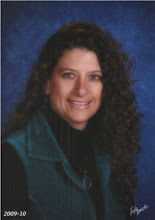
Since you have just written some excellent poems of your own, this week's blog is about poetry.
Please answer these questions in complete sentences:
1) Have you ever read any poetry for enjoyment (not as an assignment), or have you ever had to read a poem for an assignment, but actually found you enjoyed it? What was the poem or what was it about?
1) Have you ever read any poetry for enjoyment (not as an assignment), or have you ever had to read a poem for an assignment, but actually found you enjoyed it? What was the poem or what was it about?
2) If you had to spend some time reading poetry, what style would you prefer to read, and why? For example, do you like the silly rhyming style, the more serious tear-jerker poems, the free verse (like our small moment poems), the long poems that are more like a story, or another style?
3) What did you think of the poem you came up with for your last assignment? Was it better/worse than you expected? Was it difficult to do?











